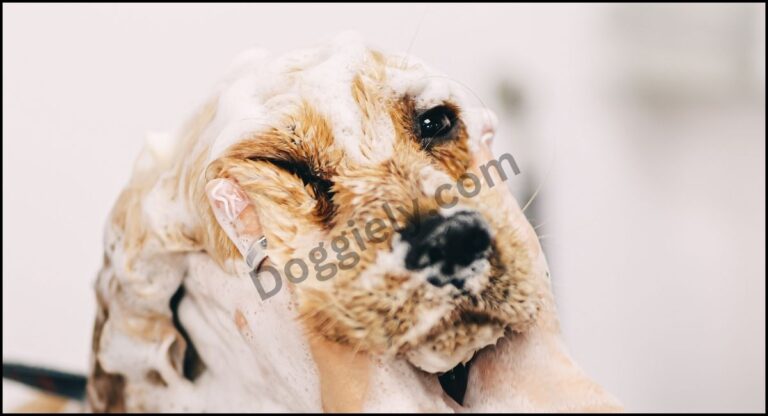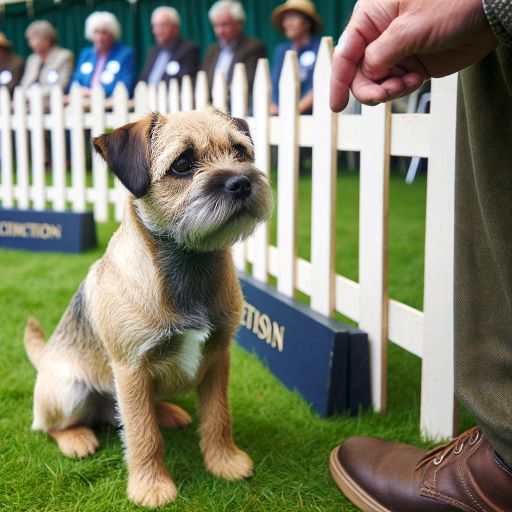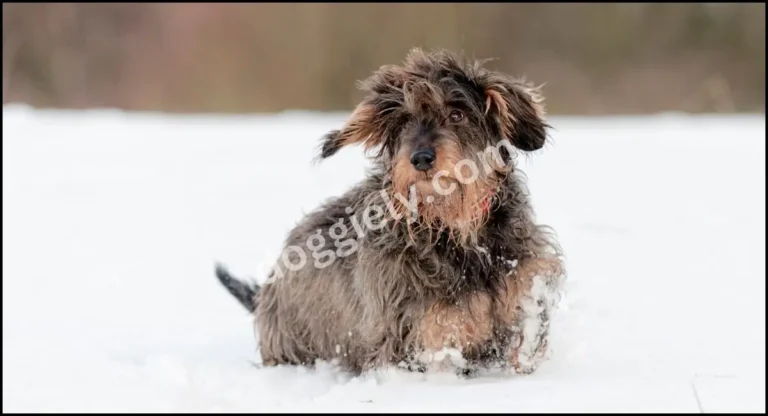The Majestic Formentino Cane Corso: Unveiling Its Unique Charm
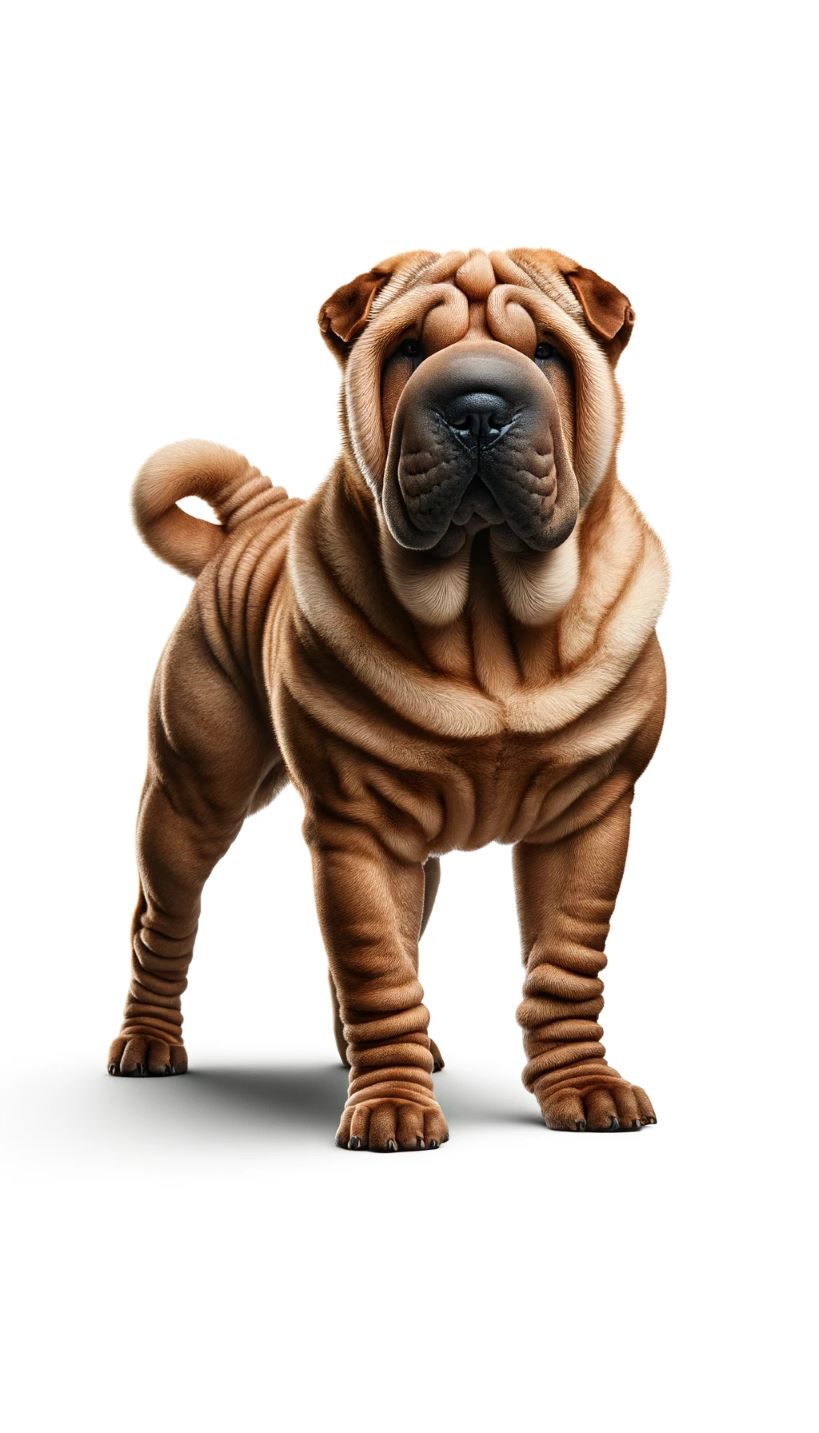
The Formentino Cane Corso, a majestic and robust breed, is a unique variety within the Cane Corso Italiano, known for its striking blue-fawn coat. With its unique coat color and impressive stature, the Formentino Cane Corso has garnered attention from dog enthusiasts and potential owners alike. In this article, we will delve into the history, characteristics, temperament, and care requirements of the Formentino Cane Corso, providing you with a comprehensive understanding of this remarkable breed.
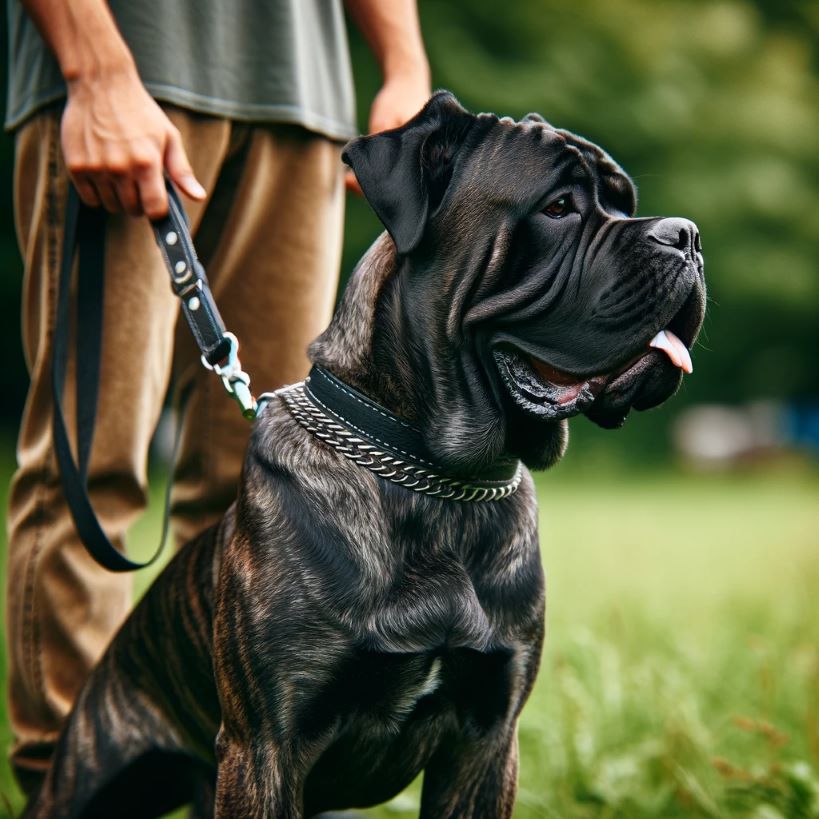
Historical Background
To fully appreciate the Formentino Cane Corso, it’s crucial to explore the breed’s historical origins. The Cane Corso, in general, is an ancient Italian breed with roots dating back to the Roman era. These dogs were primarily bred for various tasks, including guarding livestock, hunting, and providing protection to their owners.
The Formentino variety of the Cane Corso is characterized by its distinctive fawn coat with a blue-grey hue and a black mask. This color variation has its roots in the breed’s lineage, as it is believed to have been present in the Cane Corso gene pool for centuries.
Physical Characteristics
| Characteristic | Description |
|---|---|
| Size | – Males: 25 to 27.5 inches (64 to 70 cm) at withers |
| – Females: Slightly smaller | |
| Weight | – Adult Males: 100 to 110 pounds (45 to 50 kg) |
| – Adult Females: 88 to 99 pounds (40 to 45 kg) | |
| Coat Color | Fawn with a blue-grey tint |
| Coat Length | Short, dense, and smooth |
| Coat Markings | Black mask on the muzzle and sometimes other areas |
| Ears and Tail | – Traditionally cropped ears (subject to regulations) |
| – Tails are often docked (subject to regulations) | |
| Eyes | Dark and expressive |
| Build | Muscular and powerful |
| Overall Appearance | Regal, imposing, and elegant |
| Markings | Some Formentino Corsos may have white markings |
| Head | – Large, broad skull with pronounced cheekbones |
| – Powerful, square-shaped muzzle | |
| – Well-defined stop (forehead indentation) | |
| Nose | Broad, with well-developed nostrils |
| Lips | Tight and well-pigmented |
| Bite | Scissor bite (upper teeth closely overlap lower) |
| Neck | Muscular and slightly arched |
| Chest | Deep and broad chest |
| Body | Strong, well-proportioned body with a level topline |
| Limbs | – Straight, sturdy forelimbs |
| – Strong, muscular hindquarters | |
| Feet | Compact, round, and well-arched toes |
| Tail | Traditionally docked (subject to regulations) |
| Movement | Powerful, balanced gait |
| Dewclaws | Double dewclaws on rear legs may be present |
| Skin | Thick and loose, forming wrinkles on the head and neck |
| Expression | Alert, confident, and watchful |
| Chest Depth | The chest reaches to the elbows |
| Back | Short and strong, with a firm topline |
| Hindquarters | Broad and muscular, providing strong propulsion |
| Paws | Round and compact with well-arched toes |
| Tail Set | High-set tail, tapering to a point |
| Coat Texture | Smooth and shiny with a fine, dense undercoat |
| Paw Pads | Thick and well-padded for protection |
These physical characteristics provide a comprehensive overview of the Formentino Cane Corso’s appearance, structure, and features, helping to paint a detailed portrait of this remarkable breed.
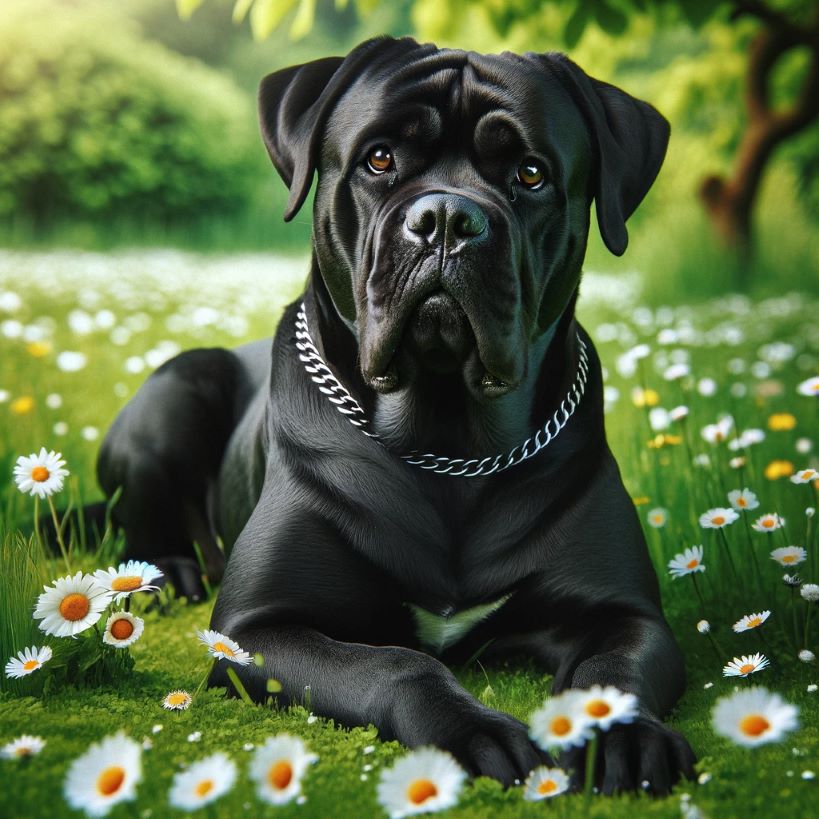
blue cane corso colors
Temperament
The Formentino Cane Corso has a temperament that combines loyalty, protectiveness, and intelligence. Here are some of the key temperament traits of the breed:
- Loyal: Formentino Corsos are known for their unwavering loyalty to their families. They form strong bonds with their owners and are protective of them.
- Protective: These dogs have a natural protective instinct, making them excellent guard dogs. They are vigilant and will defend their loved ones if they perceive a threat.
- Intelligent: The Formentino Corso is highly intelligent and trainable. With the right approach, they can learn various commands and excel in obedience training.
- Gentle with Family: While they are protective, Formentino Corsos are usually gentle and affectionate with their families, including children. Proper socialization from a young age is essential to ensure their well-rounded temperament.
- Reserved with Strangers: They tend to be reserved or aloof around strangers, which makes them effective guard dogs. Early socialization can help them be more accepting of new people and situations.
Care Requirements
Here’s an overview of the specialized grooming needs for maintaining the beauty and health of the Formentino coat color:
Regular Brushing
While the Formentino coat is short, it is dense and can shed. To maintain the coat’s health and appearance, regular brushing is necessary. Use a bristle brush or a rubber grooming mitt several times a week to remove loose fur and distribute skin oils throughout the coat. This will help keep the fur shiny and reduce shedding.
Bathing
Formentino Cane Corsos don’t need frequent baths, but when they do, use a shampoo formulated for short-haired breeds or one that is designed to enhance the coat’s unique color. Shampoos that have color-enhancing properties can help to maintain the silver-blue sheen of the Formentino coat. Always rinse thoroughly to prevent residue build-up, which can dull the coat and irritate the skin.
Sun Protection
Due to the lighter color and the dilution gene, Formentino Cane Corsos can be more susceptible to sunburn than their darker counterparts. It’s essential to limit their exposure to direct sunlight, especially during peak hours. When they are outdoors, consider using a pet-safe sunscreen on exposed areas like the nose and ears.
Skin Care
The dilution gene can sometimes be associated with skin issues, such as Color Dilution Alopecia, which can cause hair loss and skin inflammation. Keep an eye on the condition of the skin during grooming sessions. If you notice any abnormalities such as excessive dryness, flakiness, or hair thinning, consult your veterinarian for advice.
Nutritional Support
A healthy diet contributes to a healthy coat. Foods rich in omega-3 and omega-6 fatty acids can promote a shiny, healthy coat. Supplements, as recommended by a vet, can also support coat health. Always provide fresh water to keep the skin hydrated and flush toxins from the body.
Here are list of best food for Cane Corso and their respective benefits:
| Food Type | Benefits |
|---|---|
| High-Quality Dry Dog Food | Balanced diet for large breeds, rich in protein, vitamins, and minerals. |
| Raw Diet | Natural diet, high in protein, can be tailored to individual needs. |
| Wet Dog Food | Hydration, palatable, good for picky eaters, high in protein. |
| Lean Meats | High in protein, supports muscle development and maintenance. |
| Fish | Rich in omega-3 fatty acids, good for coat and skin health. |
| Whole Grains | Provides necessary carbohydrates for energy, contains fiber. |
| Vegetables | Source of fiber, vitamins, and minerals, good for digestion. |
| Fruits | Healthy treats, provide vitamins, minerals, and antioxidants. |
| Dairy in Moderation | Sources of calcium and probiotics, beneficial in small amounts. |
| Supplements | Support specific health needs like joint health, varies per dog. |
Regular Check-ups
Regular veterinary check-ups can help you stay ahead of any potential skin and coat issues. Your vet may recommend specific grooming products or dietary changes to support the Formentino coat’s unique needs.
Nail and Dental Care
While not specific to the coat color, regular nail trimming and dental care are essential parts of the grooming routine. Overgrown nails can cause discomfort and even affect the dog’s posture and gait, while good oral hygiene is crucial for overall health.
Eye and Ear Care
The Formentino Cane Corso’s expressive eyes should be clear and bright. Regularly check the eyes for any signs of redness or discharge. Their ears also require regular cleaning to prevent wax build-up and infections, which can be common in larger breeds with drop ears.
Professional Grooming Consultation
A professional groomer experienced with the breed can provide valuable advice on maintaining the Formentino coat’s health and can recommend the right grooming tools and products.
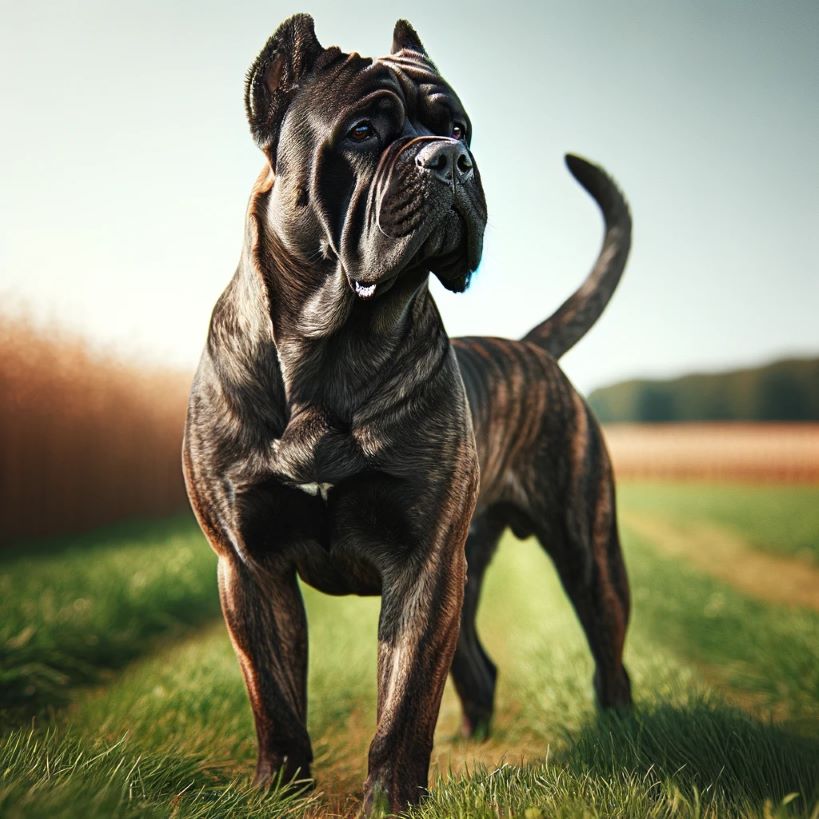
grey brindle cane corso
lifespan and Common Health Issues
The Formentino Cane Corso has a life expectancy of about 10 to 12 years. Like many large breeds, they are prone to certain health issues as analyze on the table below and how to deal with them:
| Common Health Issue | Description | How to Deal With It |
|---|---|---|
| Hip Dysplasia | A malformation of the hip joint that can lead to arthritis. | Maintain healthy weight, provide joint supplements, regular gentle exercise, consider physical therapy. |
| Elbow Dysplasia | A developmental defect in the elbow joint. | Weight control, appropriate exercise, pain management. |
| Gastric Dilatation-Volvulus (GDV) | A life-threatening condition where the stomach twists on itself. | Feed smaller, frequent meals, avoid exercise around meal times, be aware of symptoms. |
| Color Dilution Alopecia | Hair thinning and skin issues associated with dilute coat colors. | Use special shampoos, supplements for skin health, regular grooming. |
| Cardiac Issues | Various heart conditions, including cardiomyopathy. | Regular veterinary check-ups with cardiac evaluations. |
| Eye Problems | Conditions like entropion, ectropion, and cherry eye. | Regular eye exams, surgical correction if necessary. |
| Skin Infections | Bacterial and fungal skin infections. | Keep living space clean, treat infections promptly. |
| Ear Infections | Infections due to moisture trapped by their large, pendulous ears. | Regular cleaning and drying of ears. |
| Nutrition | Ensuring a diet that meets the dog’s nutritional needs. | Well-balanced diet, tailor to age, size, and activity level. |
This table outlines the primary health concerns for Formentino Cane Corsos and provides general strategies for prevention and management. However, it’s essential to consult with a veterinarian for personalized care for your dog.
Training and Socialization
Training and socializing a Formentino Cane Corso is crucial. Due to their size and protective nature, they must learn to obey commands and behave appropriately around people and other animals. Early socialization helps them become well-adjusted adults. Training should be consistent, firm, but always positive and reward-based.
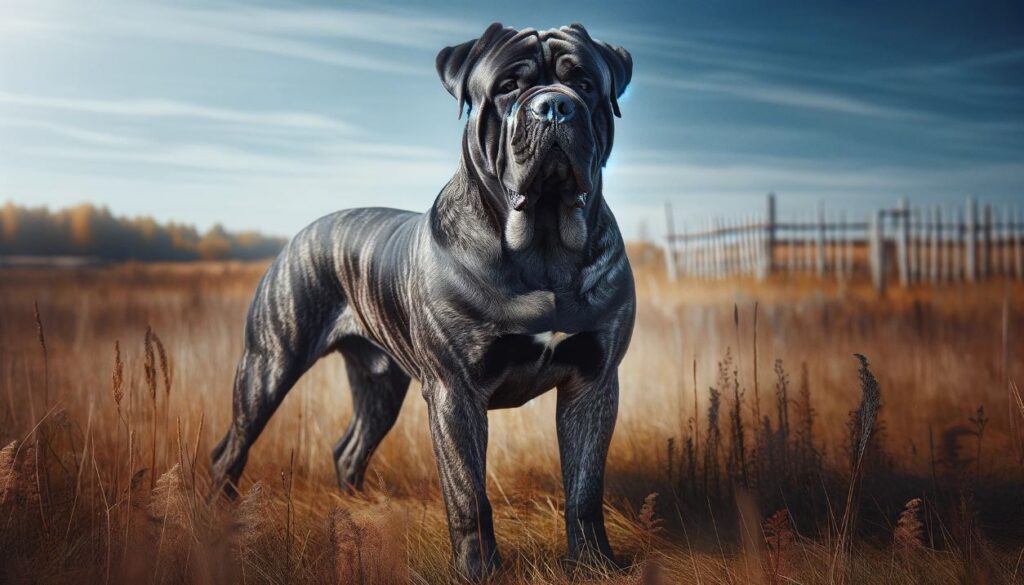
Exercise Requirements
The Formentino Cane Corso, like all Cane Corsos, requires regular exercise to maintain its physical and mental well-being. They thrive on activities like long walks, hikes, and playtime in a securely fenced yard. Their exercise regimen should also include mental stimulation, such as training exercises or puzzle toys, to keep their active minds engaged.
Living Conditions
Given their size and energy level, Formentino Cane Corsos do best in homes with ample space. They are not suited for apartment living. A home with a large, fenced yard where they can move freely is ideal. However, they should live indoors with their family, as they thrive on human companionship and can become destructive if left alone or isolated.

Ideal Home
The ideal home for a Formentino Cane Corso is one where they are part of the family. They do well with children and other pets if raised together, but supervision is necessary due to their size. Prospective owners should be experienced in handling large breeds and committed to providing the necessary training, exercise, and care.
Conclusion
The Formentino Cane Corso is a magnificent and loyal breed, perfect for those who appreciate its unique characteristics and are willing to invest time in training and care. With the right environment and dedicated owners, these gentle giants can be loving and protective companions, embodying the noble spirit of the Cane Corso lineage.
faq
What is a Formentino Cane Corso?
A: The Formentino Cane Corso is a color variation of the Cane Corso, an Italian breed of mastiff. “Formentino” refers to the coat color, which is a shade of fawn with a blue or grey mask.
How does the What’s the difference between fawn and Formentino?
A: The difference between fawn and Formentino lies in the mask; fawn has a black mask, while Formentino has a blue or grey mask.
What should I look for when selecting a Formentino Cane Corso puppy?
A: Look for a reputable breeder who conducts health screenings. The puppy should be well-socialized, healthy, and exhibit a temperament that is true to the breed.
What is the rarest Cane Corso?
A: The rarest Cane Corso color is the blue brindle. It’s a striking and less commonly seen color pattern in the breed.
Do they require special grooming?
A: Formentinos require the same grooming as any Cane Corso, which includes regular brushing, bathing as needed, and general care like nail trimming and ear cleaning.
Is the Formentino coat color associated with any specific health issues?
A: There is a condition called Color Dilution Alopecia that can occur in dogs with diluted coat colors, but not all Formentinos will be affected. It’s important to discuss this with the breeder and have regular vet check-ups.
Are Formentino Cane Corsos good with children and other pets?
A: With proper socialization and training, they can be excellent with children and other pets. However, due to their size and protective nature, interactions should always be supervised.
How much exercise does a Formentino Cane Corso need?
A: They need a moderate amount of exercise. Daily walks and playtime in a secure area are usually sufficient to keep them fit and happy.
What kind of training does a Formentino Cane Corso require?
A: Early obedience training and socialization are crucial. They are intelligent and responsive to positive reinforcement training methods.
What is the lifespan of a Formentino Cane Corso?
A: The average lifespan is around 10 to 12 years, which is typical for a breed of their size.
How can I ensure my Formentino Cane Corso is healthy?
A: Regular veterinary care, a balanced diet, appropriate exercise, and preventive measures for common health issues are key.
Can Formentino Cane Corsos live in an apartment?
A: They can adapt to apartment living if they receive enough exercise and mental stimulation, but they do best in homes with more space.
Are they aggressive?
A: They are not inherently aggressive but have a protective nature. Proper training and socialization are essential to manage their guarding instincts.
Is the Formentino Cane Corso recognized by major kennel clubs?
A: Yes, the Cane Corso, including the Formentino variety, is recognized by major kennel clubs, including the American Kennel Club (AKC).
Related Posts:
Read More: Why Does My Dog Open His Mouth When I Pet Him? 7 Reasons
Read More: Why Does My Dog Keep Sniffing My Legs: 5 Common Reasons
Read More: Why Does My Dog Bite Me In The Morning? 2 Way To safe From
Read More: Why Are My Dogs Balls Black? Best Number 1 Answer
Read More: Why Do Dogs Like Peanut Butter?
Read More: Why Does My Dog Nibble My Ear? 10 Reasons
Read More: Why Does My Dog Sleep In The Closet? 4 Reasons
Read More: Crate Training Pros And Cons: 6 Advantages

